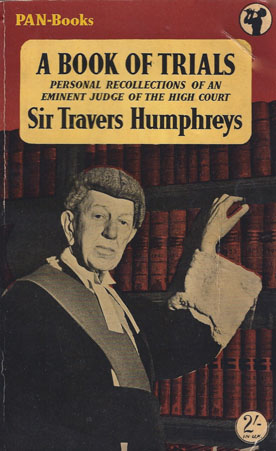
A Book of Trials is a lively and informative account of some of the most fascinating major court cases of recent times, written by a man who played a leading part in them.
As one critic puts it: "Books on crime are legion, but books by eminent judges are rare." Here, Sir Travers Humphreys, an eminent Judge of the.High Court, discusses the highlights of a long and brilliant career with penetrating wisdom. Oscar Wilde, Crippen, Horatio Bottomley, Windell the forger, and the cases of the "Great Pearl Robbery" and the "Brides in the Bath" are among the many trials in which he was briefed as counsel.
Those he tried included the cases of the "Port-hole Murder" and of the murderer Iohn George Haigh. He was also prosecuting counsel, under Sir Thomas Inskip, in the sensational Thompson and Bywaters trial which aroused such widespread and lasting interest. There are some very strange cases which the reader will, perhaps, meet for the first time and Sir Travers also recalls several cases of espionage and treason. Altogether more than 30 trials, skilfully chosen for variety and sustained interest, are described.
The Rt. Hon. Sir Travers Humphreys, P.C., the fourth son of a solicitor, was educated at Shrewsbury School and Trinity College, Cambridge. Called to the bar in 1889, he was Junior Counsel to the Crown at the Central Criminal Court in 1908 and Senior in 1916. After appointments as Recorder of Chichester and Recorder of Cambridge, he was made a Judge of the King's Bench Division in 1928. He retired in 1951.